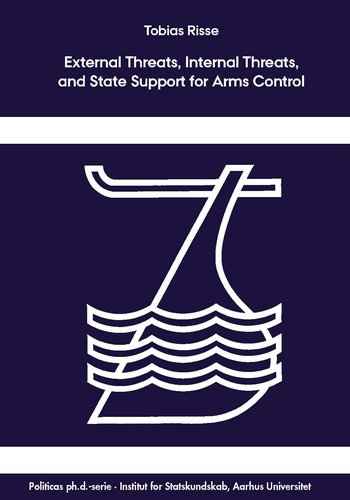Tobias Risse
External Threats, Internal Threats, and State Support for Arms Control

Global armament is on the rise, but states’ willingness to implement effective arms control measures is limited. Scholars of international relations have pointed toward external threats by other states as the main explanatory factor leading states to oppose arms control. However, we lack a systematic assessment of the relationship between security threats and states’ positions on arms control. Moreover, existing research has largely neglected that internal threats are far more common today than external ones. This dissertation therefore addresses the question of how security threats affect state support for arms control. I investigate this question in three quantitative studies of external threats, major power threats, and civil wars, respectively. Contrary to conventional wisdom, the analyses do not yield any significant effect of external threats on support for arms control in general. While major power threats are associated with less arms control support, this only holds if the threatened state is a non-major power. Finally, I find a positive relationship between civil wars and support for conventional arms control. The contribution of this dissertation to the existing literature is twofold. First, by combining UN General Assembly voting data with manual coding of resolutions, I introduce the first comprehensive measure of state support for arms control that covers all countries and variation over time. Second, I establish that the relationship between security threats and states’ arms control support is neither limited to external threats nor strictly negative, but context-specific. This sheds new light on the study of arms control and international politics.
![]() Ophavsretten tilhører Politica. Materialet må ikke bruges eller distribueres i kommercielt øjemed.
Ophavsretten tilhører Politica. Materialet må ikke bruges eller distribueres i kommercielt øjemed.